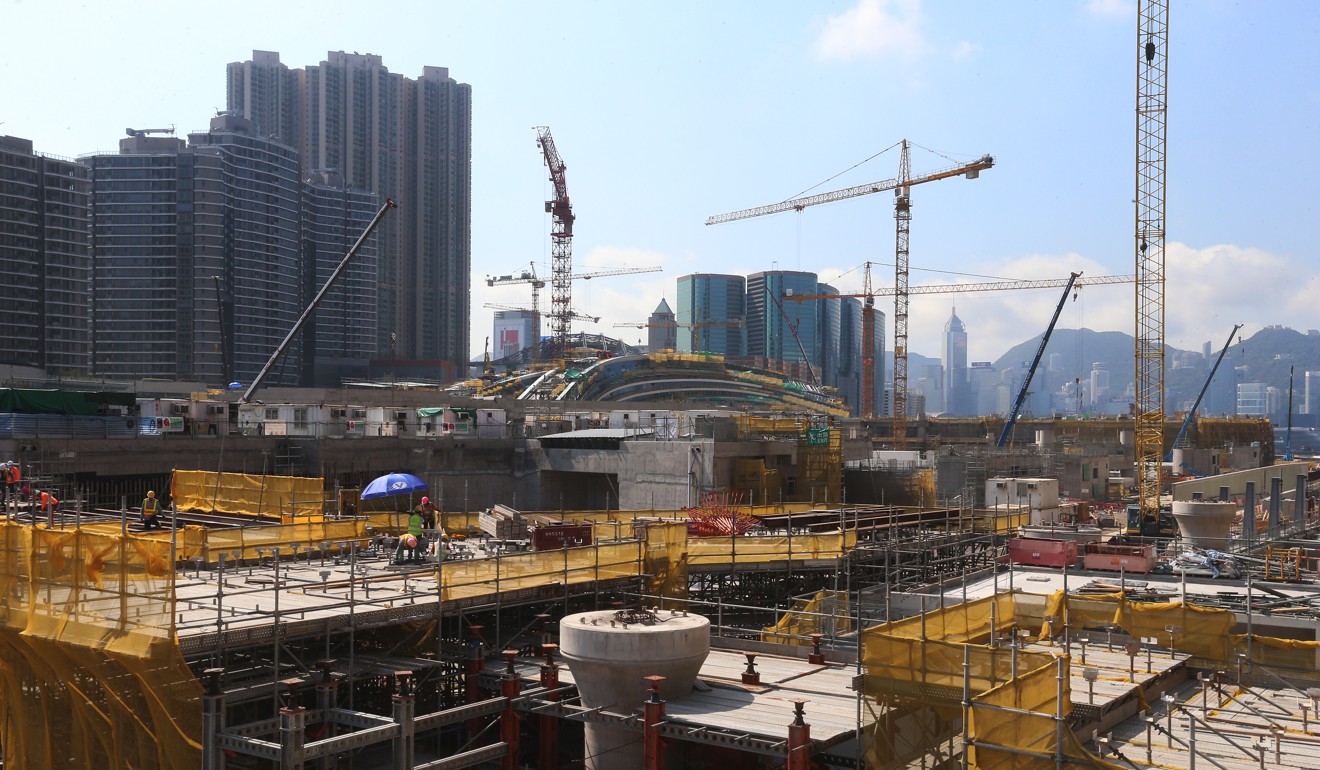
Don’t view joint checkpoint at cross-border railway negatively, Hong Kong’s justice minister tells public
Rimsky Yuen says allowing mainland officers to operate in city will still comply with ‘one country, two systems’ formula
Hong Kong’s justice minister has urged people not to hold negative views on a joint checkpoint arrangement at the cross-border railway that will allow officials from mainland China to exercise immigration controls and security checks.
Rimsky Yuen Kwok-keung stressed the law enforcement model would comply with the city’s “one country, two systems” governing system.
But he declined to disclose further details of the proposal, which is expected to be tabled to the Legislative Council for approval next month.
The Hong Kong government has been working with the mainland authorities to resolve the law enforcement arrangement for a joint immigration facility at the Guangzhou-Shenzhen-Hong Kong Express Rail Link, which will start operating late next year.
“Whether it’s the central government officials or the Hong Kong officials, we have always worked towards the consensus that the joint immigration checkpoint will be operated in accordance with the Basic Law and one country, two systems,” Yuen said during a trip to London.
“It is important to understand the nature of a joint checkpoint and why we do that, and not to view the matter negatively.”

Tien said Beijing and Hong Kong had reached an agreement that a mainland restricted zone would be created in the West Kowloon terminus, which would include part of the hall and be extended to cover the rail tracks from the Hong Kong border to the terminus.
Democratic Party chairman Wu Chi-wai said he opposed any arrangement that would grant mainland officers enforcement powers in Hong Kong.
The NPC Standing Committee is expected to incorporate the rules on enforcement in the restricted zone in Annex III of Hong Kong’s Basic Law, in order to fulfill the requirement of Article 18 that national laws will not be applied to the city unless they are listed in the annex.
Officials have said that if there were separate checkpoints rather a joint arrangement, the 48-minute journey to Guangzhou would take at least another 30 minutes, effectively defeating the purpose of the link.
Meanwhile, in London, Yuen gave a speech on rule of law at Asia House. He said the Basic Law arrangement to allow the city’s top appeal court to invite judges from other common law jurisdictions to rule on cases had proved to be a success, ensuring the quality of the judgments as well as enhancing confidence of the public and the international business community.

